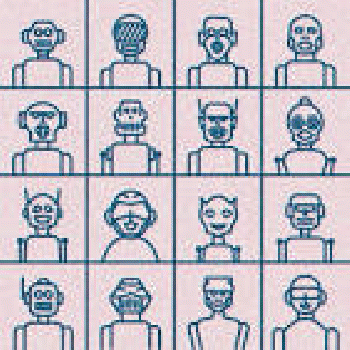| Back OpEd News | |||||||
|
Original Content at https://www.opednews.com/articles/Thinking-About-Amazon-How-by-Ali-Hangan-Economy_Jobs_Robot_Students-170722-373.html (Note: You can view every article as one long page if you sign up as an Advocate Member, or higher). |
|||||||
July 21, 2017
Thinking About Amazon: How do I have a conversation with my students about jobs?
By Ali Hangan
A teacher reflects the future job market his students will enter with more robots in the workplace.
::::::::
I've been a teacher for 20 years. The end of Summer is when I prepare to lead my young charges on a journey of learning and discovery. On the first day of class, the first conversation I hold with my students is about education. I start off by saying, "Education is important it will prepare you for a career." I choose this topic to instill hope in my students that all their work in school will pay off one day.
For the better part of the 20th century, schools grew to great monoliths of learning. Cycling millions of students through classrooms into the world of work. But more importantly, a school is a doorway for opening up young minds to a world of possibilities.
In the 1980's, companies introduced digital machines into production; placing new demands on workers to increase their skills to work with the new tools of industry. While the speed of school systems to harmonize instruction to a changing economy is often glacial, teachers and education leaders have found creative ways to adjust. New programs that support S.T.E.M. (Science, Technology, Engineering, Math), computer science, and robot design are sprouting up in innovative high schools and classrooms across the country.
Although the drumbeat of criticism persists toward high schools as "failing" to prepare students for the workplace, graduates are finding jobs. According to the Bureau of Labor Statistics, the unemployment rate for high school graduates declined from 11% in 2009 to 7.7% in 2017. While still higher than the national average of 4.4%, the downward trend gives a reason to be optimistic about the ability of high schools to prepare students to get a job in the 21st-century economy.
But the conversation I will have with my students this school year will be different. Over the last year or so, there's been a steady stream of headlines in the business press tracking the growing trend of automation and robots doing tasks once carried out by people. With the recent announcement of the purchase of Whole Foods by the mega online retailer Amazon, renowned for automated warehouses and workerless grocery stores, it has awakened fresh concerns over the elimination of entire jobs categories and an army of unemployable people.
Whether these concerns vet out or not, remains to be seen, but an article in the Wall Street Journal, titled Robots Are Replacing Workers Where You Shop, published July 19th, 2017, predicts headwinds for workers on the horizon. The article cites findings in a study conducted by Citi Research and Oxford Martin School in 2015 noting:
"...two-thirds of U.S. retail jobs are at 'high risk' of disappearing by 2030."
And the article further points out,
"Nearly 16 million people, or 11% of nonfarm U.S. jobs, are in the retail industry, mostly as cashiers or salespeople. The industry eclipsed the shrinking manufacturing sector as the biggest employer 15 years ago. Now, as stores close, retail jobs are disappearing. Since January, the U.S. economy has lost about 71,000 retail jobs, according to data from the Bureau of Labor Statistics."
With these facts in mind, I am struggling with what I should tell my students. While I am professionally bound to encourage students to strive for a career, I am ethically obliged to explain the challenges they may face in being gainfully employed. On the first day of class, I will have my conversation with my students about the importance of an education to reach their career goals. If a student asks: Mr. Hangan what career should I to pursue? In light of businesses automating more work and hiring fewer people, I will just have to say, "Hmmm...what a great question."
Authors Bio:
Ali Hangan is high school teacher in Pomona, California.
